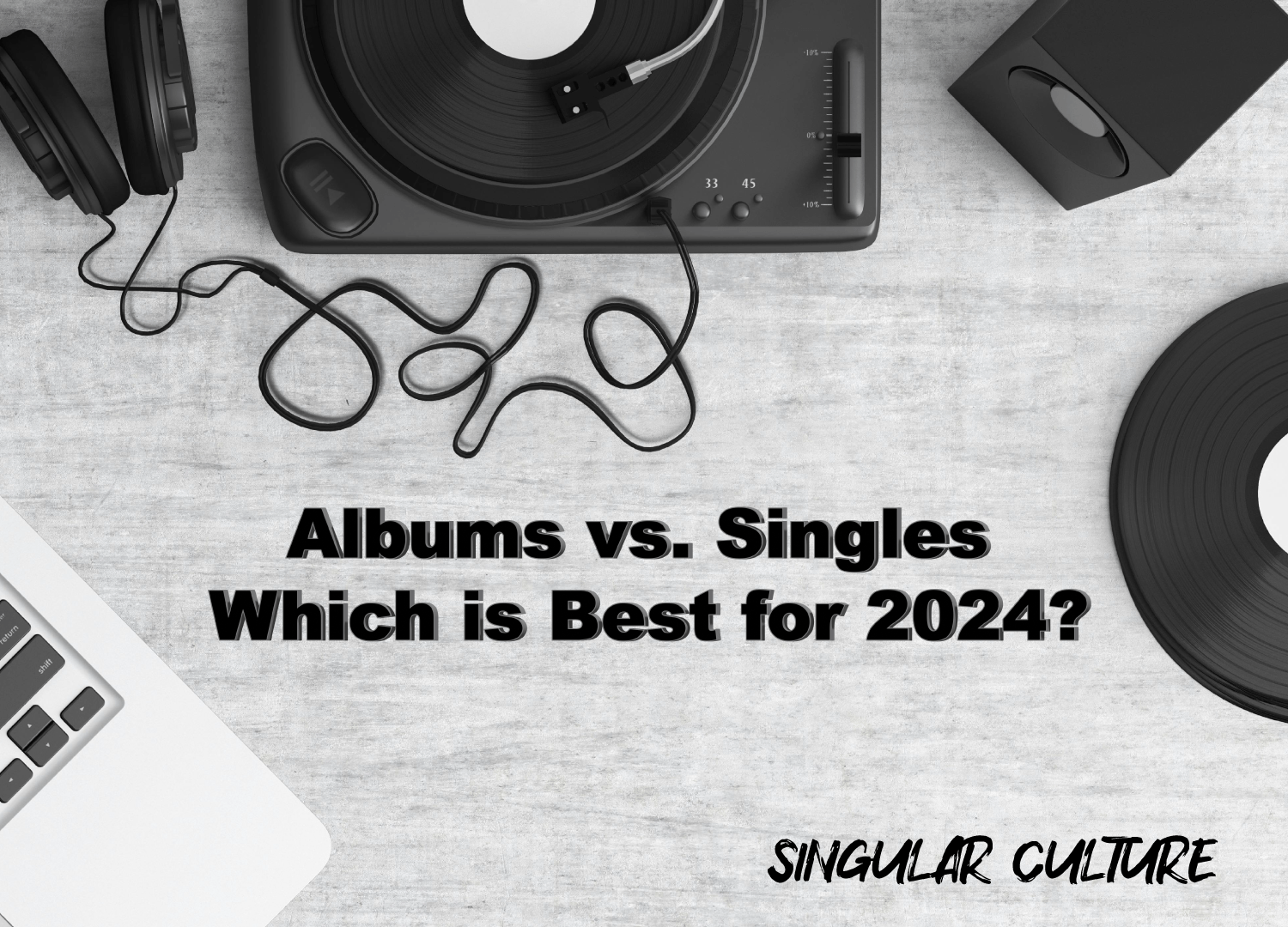
The debate over whether artists should focus on releasing albums or singles is more relevant than ever in today’s music industry. With streaming services like Spotify and Apple Music prioritizing singles, many argue that the traditional album format might be becoming obsolete. However, both strategies have their unique benefits and can significantly impact an artist’s career.
The Case for Singles
1. Building Your Fanbase: For emerging artists, releasing singles is often the most effective way to build an audience. Singles allow you to put out music more frequently, helping you gain traction and keep your listeners engaged. By focusing on individual tracks, you increase your chances of being featured on popular playlists, which can significantly boost your visibility.
2. Maximizing Streaming Potential: Streaming services prioritize recent releases. By releasing singles regularly, you ensure your music remains in the spotlight, increasing your chances of being picked up by playlist curators and streaming algorithms. Each new single provides an opportunity for promotion and can attract new listeners to your music.
3. The Waterfall-Release Strategy: A popular approach is the “waterfall-release-strategy,” where you release singles leading up to an album’s full release. This method helps build anticipation and keeps your audience engaged over a longer period. For example, you might release a single every six weeks, culminating in the full album release. This approach leverages the same ISRC codes, allowing you to include previously released singles on the album, retaining their play counts and saves.
The Case for Albums
1. Creating a Cohesive Narrative: Albums offer a platform to present a cohesive artistic vision. They allow you to explore themes and tell a story in a way that singles cannot. For established artists with a dedicated fanbase, albums can deepen the connection with your audience, providing them with a more immersive experience.
2. Longer Engagement: While singles offer frequent engagement, albums provide longer-term interaction. Fans are more likely to spend extended time with a full album, leading to deeper connections with your music. An album can also be a significant event, allowing for promotional activities such as album release shows and livestream events.
3. Cost-Effective Promotion: Releasing an album can be cost-effective in terms of promotional budgets. Instead of spending on multiple single releases throughout the year, you can focus your promotional efforts on a few singles leading up to the album launch. This can help manage your budget and make the most of your promotional activities.
Hybrid Approach: Singles, EPs, and Albums
A balanced strategy often works best. Consider releasing singles to maintain visibility and build momentum. Follow up with an EP to provide a more substantial body of work without the commitment of a full album. Finally, use your established fanbase and promotional efforts to release a full album. This approach maximizes engagement and ensures you make the most of each release format.
The EP Advantage: An EP is a shorter, more manageable project than a full album. It’s a great way for new artists to grow their fanbase with a focused collection of tracks. By applying the singles strategy to your EP, you can maximize exposure and build anticipation for future releases.
Consistency is Key: Regardless of your release strategy, consistency and follow-through are crucial. Regularly putting out quality music helps you stay relevant and maintain your audience’s interest. Adjust your schedule to fit your lifestyle and songwriting process, and be patient. Building a loyal fanbase takes time, but with a strategic approach, you can achieve lasting success.
Deciding whether to release albums or singles depends on your current career stage, promotional resources, and artistic goals. Singles are ideal for building an audience and maintaining visibility, while albums offer a deeper, more immersive experience.
A hybrid approach that combines singles, EPs, and albums can provide a balanced strategy, maximizing both engagement and artistic expression. By planning your releases strategically and staying consistent, you’ll be well-positioned to grow your career and connect with your audience effectively.
